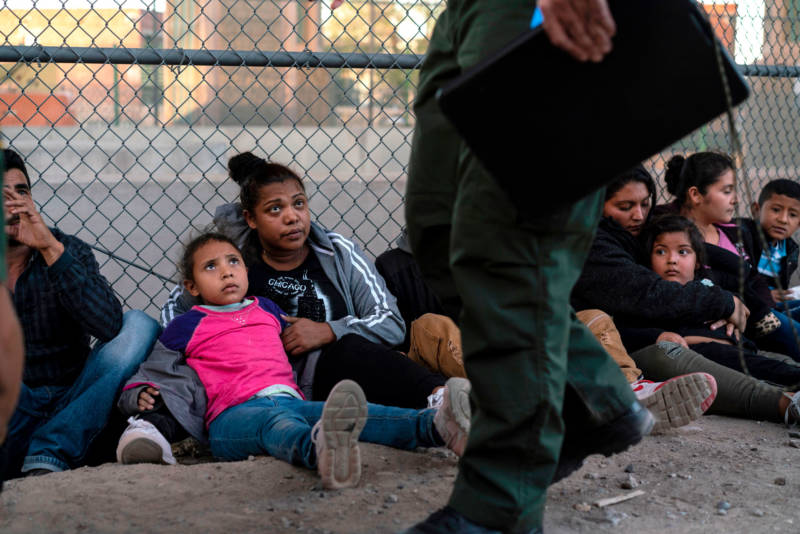"Border Patrol has these rules that they are not supposed to be touching the children. And so they don’t touch them, they don’t help them, they don’t care for them," said Bill Hing, a law professor with the University of San Francisco who interviewed kids at the facility, most of whom had been separated from aunts, uncles, cousins and siblings at the border.
One girl was just 2 years old, he said.
"She was on her own, and only because there was a nice 16-year-old girl that took care of her that she has somebody to comfort her," said Hing. "It was unbelievable."
By law, unaccompanied minors are supposed to be transferred out of CBP custody within 72 hours to specialized shelters meant to care for unaccompanied minors. But Health and Human Services Secretary Alex Azar said shelter space is "at capacity."
Hing said while it was clear the government should fund more space to hold migrants, he doesn’t believe the Trump administration should detain and separate relatives traveling together, as data shows the vast majority show up for court asylum hearings even when not detained.
Rep. Julia Brownley (D-Westlake Village) echoed Hing’s concern, faulting the Trump administration for taking children from adult relatives because they were not parents or legal guardians.
"The President is purposefully making this situation worse by refusing to place these children with known family members while their cases are reviewed," Brownley said in a statement Wednesday, "and by cutting foreign assistance programs in Central America — a decision that is intended to make matters even worse."
The Associated Press contributed to this report.

